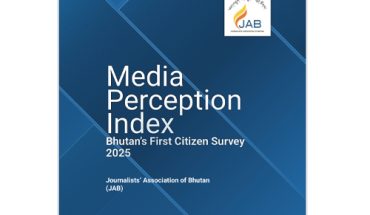The National Council’s recent review of government responses to its recommendations exposes a deeper, more troubling trend and one that echoes the chronic neglect of vital recommendations by Bhutan’s key oversight bodies, including the Anti-Corruption Commission (ACC) and the Royal Audit Authority (RAA).
These institutions were created to serve as the backbone of transparency and good governance. Yet time and again, their findings and recommendations are treated as bureaucratic footnotes which are acknowledged on paper but rarely acted upon.
This is not a new problem. The ACC has repeatedly flagged instances of procurement irregularities, misuse of public funds, and administrative lapses. The RAA, through its audits, continues to uncover inefficient spending, unaccounted funds, and systemic weaknesses across ministries and state-owned enterprises.
And yet, the majority of these recommendations quietly fade into obscurity without a meaningful implementation mechanism or follow-up. Why? Because the current system lacks a strong, enforceable structure of checks and balances that demands action rather than politely requesting it.
What does it say about our governance when the very organs tasked with fighting corruption and upholding fiscal discipline are routinely ignored? When recommendations from the ACC and RAA, and for that matter the National Council, end up gathering dust, there are no real consequences for poor governance.
This culture of selective responsiveness is not only inefficient but dangerous. It erodes public trust in institutions, demoralizes the very officials who work diligently to investigate and report problems, and enables complacency, if not outright impunity.
It also signals to future leaders and civil servants that negligence is tolerated, and that compliance with democratic norms is optional rather than mandatory.
What our country needs is a fortified system of check and balance where oversight bodies have real teeth, and their reports are not just received, but actioned.
The government must establish statutory timelines and mechanisms for agencies to respond to and implement recommendations from the ACC, RAA, and parliamentary committees. Non-compliance should be flagged in annual performance reviews, and repeated neglect must carry administrative consequences.
Then, there must be a transparent tracking system accessible to the public. Every recommendation—whether from the ACC, RAA, or the parliament should be logged, monitored, and regularly updated with progress reports.
In addition, civil society, the media, and citizens must be empowered to monitor follow-ups and ensure that transparency remains the best tool to gauge our progresses.
Yet again, the National Assembly and National Council must collaborate more effectively to institutionalize oversight. It is not enough to issue recommendations; they must also summon those responsible for implementation and subject them to open questioning and, where necessary, censure.
Parliamentary oversight cannot be reduced to a ceremonial ritual, rather it must become the democratic watchdog it is meant to be.





